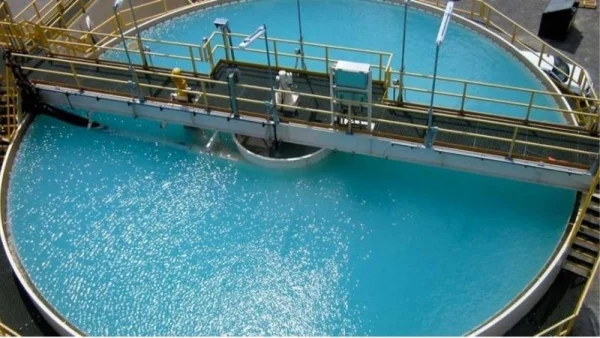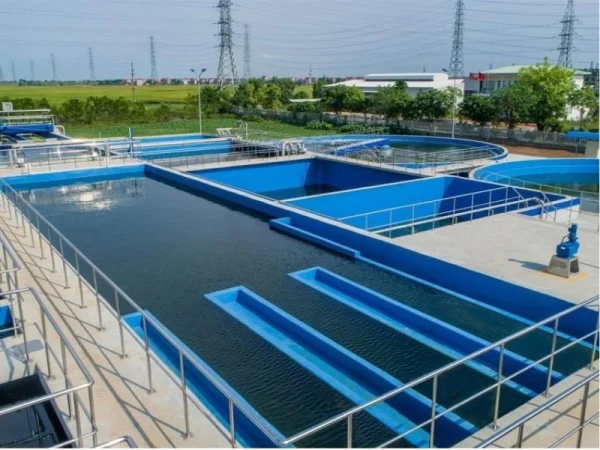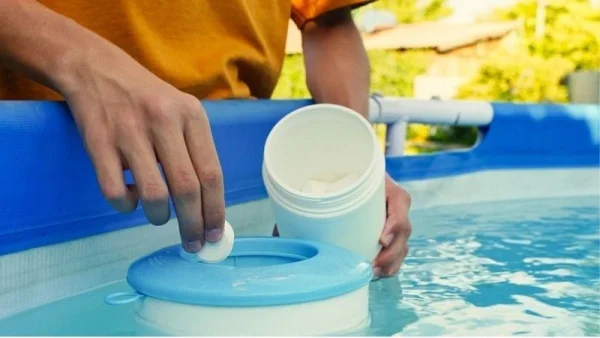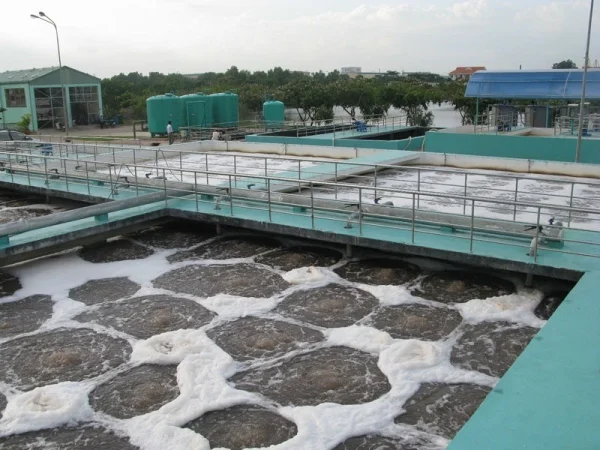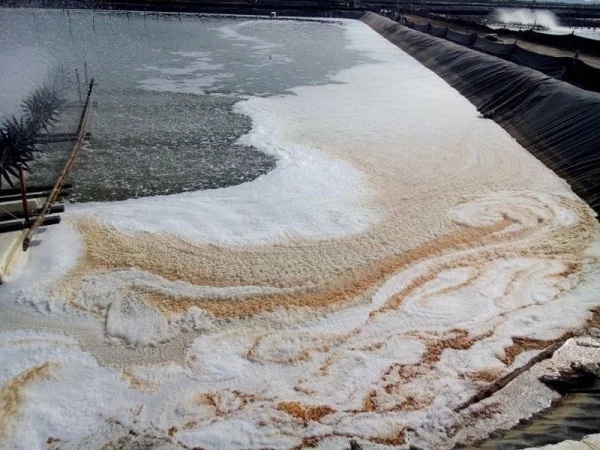
Chlorine is a common disinfectant used to maintain the cleanliness and safety of swimming pool water. In this article, we will learn about common types of swimming pool chlorine and their importance in maintaining pool water quality. With the development of technology and convenience, chlorine has become an indispensable component in maintaining swimming pools clean and safe for users. Let's explore the types of swimming pool chlorine and understand their importance in the article below.
Introduction to the role of swimming pool chlorine
A swimming pool is a place where water collects and is used for swimming, rest and entertainment. To ensure safety and water quality in swimming pools, the use of chemicals is very important.
The importance of chemicals in swimming pools
- Disinfection and antisepsis: Chemicals in swimming pools such as chlorine, chloramine and bromine are used to disinfect, reduce the risk of infection and protect the health of users. They help destroy bacteria, viruses, fungi and algae that can cause disease in humans.
- pH control: Use chemicals such as sulfuric acid or potassium salts to adjust the pH of the water in the pool. A balanced pH between 7.2 and 7.8 is ideal for preventing the water in the pool from being too acidic or alkaline, enhancing the effectiveness of the various substances in the water.
- Algae control: Chemicals such as bromine and algaecide are used to prevent algae growth in swimming pools. Algae can create stains, making the water gray and unpleasant. Using the right chemicals helps prevent algae growth and maintains clean water.
Report on types of swimming pool chlorine
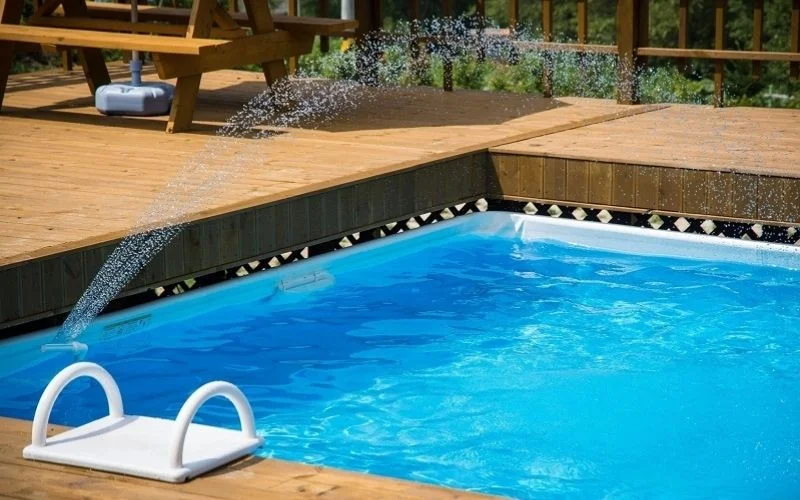
The importance of using swimming pool chlorine
- Organic chlorine: This is a type of chlorine synthesized from organic substances, usually trichloro s - triazinetrione (trichlor). This type of chlorine is easy to use and has good bactericidal ability, while maintaining water purity longer than non-organic chlorine. However, using organic chlorine can cause itching and skin irritation if directly exposed.
- Non-organic chlorine: Includes three main forms: geological chlorine (calcium hypochlorite), sodium chlorine (sodium hypochlorite), and double chlorine (dichloroisocyanurate). Non-organic chlorine works faster and more effectively than organic chlorine, and does not irritate the skin. However, non-organic chlorine can increase water hardness and has a rather strong odor.
Chlorine hydrogen (HClO)
Hydrochloric acid (HClO), also known as hydrochloric acid, is a chemical compound with the formula of HClO. In solution form, it is called chlorinated water.
Properties and uses of hydrogen chlorine
- Properties: Chlorine hydrogen is a colorless liquid with a strong odor and strong acidic properties.
- Chlorine solution (HClO): Chlorinated water is often used as a powerful bleach and cleaning agent. It is also used in water treatment and disinfection due to its bactericidal properties and the element chlorine in chlorinated water.
- Polymerization of chlorine hydrogen: Chlorine hydrogen has the ability to self-polymerize into active chlorine under conditions depending on concentration and pH. This increases the bactericidal and disinfecting ability of hydrogen chlorine.
The impact of this pool chlorine on water and microorganisms
- Effects on water: Hydrogen chlorine can decompose into active chlorine (Cl2) and water when exposed to sunlight or heated. Active chlorine is a powerful disinfectant and increases water treatment capacity.
- Impact on microorganisms: Hydrogen chlorine has the ability to kill bacteria and eliminate bacteria, viruses and disease-causing microorganisms. It is commonly used for disinfection in the food industry, health sector and water supply.
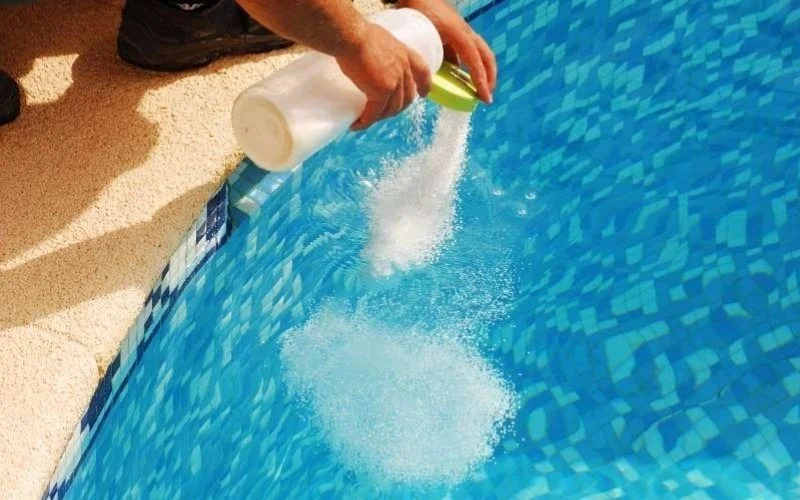
Some popular types of swimming pool chlorine
Chloramine (NH2Cl)
Chloramine (NH2Cl) is a chemical compound formed from the combination of ammonia (NH3) and chlorine (Cl2). It is commonly used as a disinfectant in water treatment and as a bleach in industry.
Uses of Chloramine
- Water treatment: Chloramine is widely used in water treatment to disinfect and kill bacteria, viruses and organic compounds. It is added to drinking water and water supply systems to prevent the growth of pathogenic microorganisms.
- Bleaching agent: Chloramine is also used in the textile and paper industries as a bleaching agent. It can remove natural color and the color caused by bacteria, helping to create brighter white products.
The impact of this chlorine on water and microorganisms
- Chloramine has a powerful disinfectant effect on water, killing bacteria, viruses, and organic compounds. This helps prevent the growth of pathogens and protects human health.
- Chloramine can also have negative effects on some microbial systems, such as beneficial microorganisms and used for natural water treatment. The use of Chloramine can kill beneficial microorganisms and create by-products that pollute the environment, such as odor-causing organic substances and clogging additives.
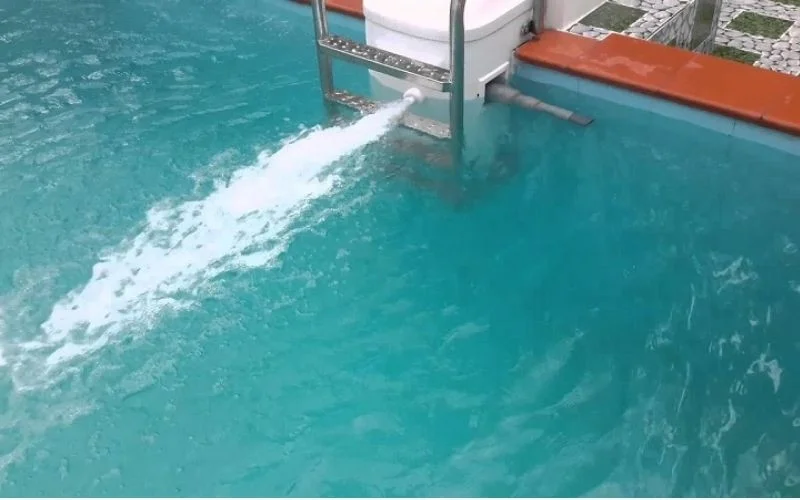
Some popular types of swimming pool chlorine
The importance of choosing the right type of pool chlorine
Choosing the right type of pool chlorine is of great importance for the health of the user and the surrounding environment, as well as its effectiveness in killing microorganisms. The following are the specific effects of choosing the right type of pool chlorine.
- Impact on users' health: Chlorine is a strong antibacterial agent and has the ability to kill bacteria, viruses, fungi and algae in pool water. Using chlorine for swimming pools helps ensure that disease-causing microorganisms do not grow and infect users. Using unnecessary amounts of chlorine can cause health risks, such as dermatitis, eye irritation, respiratory and digestive problems. Therefore, choosing the right type of pool chlorine, with a safe concentration, is necessary to ensure the health of users.
- Effects on the surrounding environment: Chlorine is used to disinfect and kill microorganisms in swimming pool water. However, when the pool is refreshed or the water is drained, the remaining chlorine in the water can have a negative impact on the surrounding environment, such as nearby river, stream or ocean. Choosing the right type of pool chlorine that can decompose naturally and less harmful to the environment is important in minimizing negative impacts on the water environment.
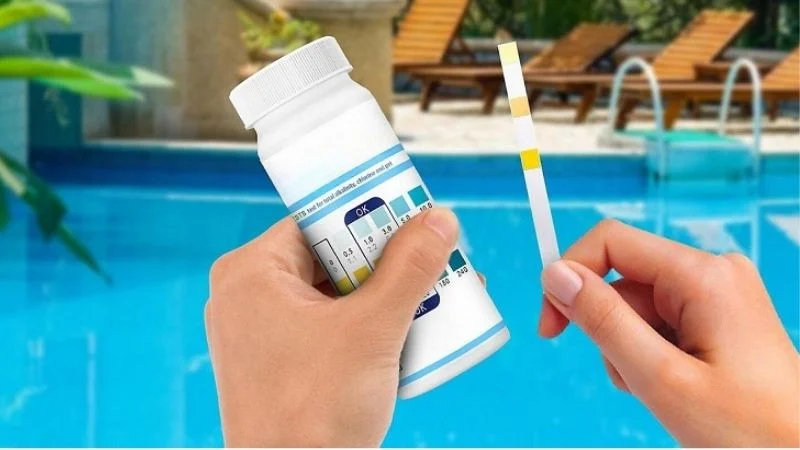
Choosing the right type of pool chlorine is extremely important
The unit specializes in providing quality swimming pool chlorine and water treatment in Vietnam
Dong A Chemical Company is one of the leading companies in Vietnam specializing in providing chemicals and chemical water treatment. With more than 20 years of experience in the industry, we understand the high requirements and demands for quality and effectiveness of chemical products. Dong A always accompanies and supports customers in using chemicals and water treatment, from consulting, providing products to technical support. With a vision and mission to become a leading supplier in the field of chemicals and water treatment, we commit to meet all customer needs with top quality, dedicated service and highest value.
In general, using chlorine to treat swimming pool water is very important to ensure safety and hygiene for users. It is not only required to choose the right type of chlorine, but also the correct dosage and usage method must be applied to achieve maximum effectiveness. Using pool chlorine properly is extremely important to ensure the water in the pool is always clean and safe. Pool chlorine helps kill bacteria, viruses, algae and other harmful agents in pool water, while also preventing the spread of disease.
Related Articles
PAC Provides The Safest And Most Effective Water Treatment Today
Currently, instead of using river water as before, many localities, including rural areas, have ...
Chlorine Is The Most Effective And Popular Wastewater Treatment Today
Chlorine wastewater treatment has become an effective solution in solving the current environmental ...
Instructions On Effective Chlorine Water Treatment Methods
Chlorine is commonly used in many industries and in our daily lives. Especially the use of chlorine ...
PAC Chemicals For Swimming Pool Water Treatment - Advantages And Treatment Process
PAC is a swimming pool water treatment compound commonly used and produced by many major countries ...
Current Applications of PAC Chemical for Wastewater Treatment
During the industrial wastewater treatment process, people often use coagulation chemicals to remove ...
Causes and Best Ways to Treat Slimy Shrimp Pond Water
High-tech intensive and super-intensive shrimp farming models on canvas-lined ponds give extremely ...

